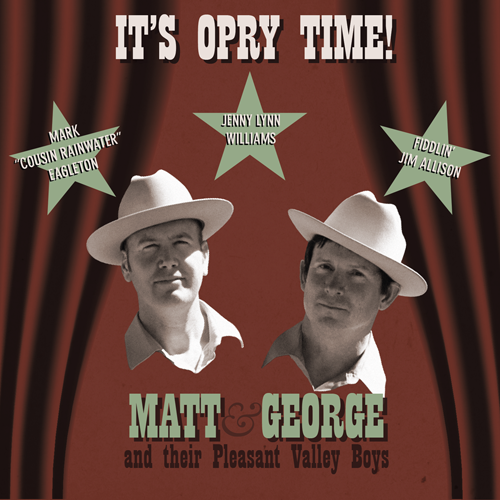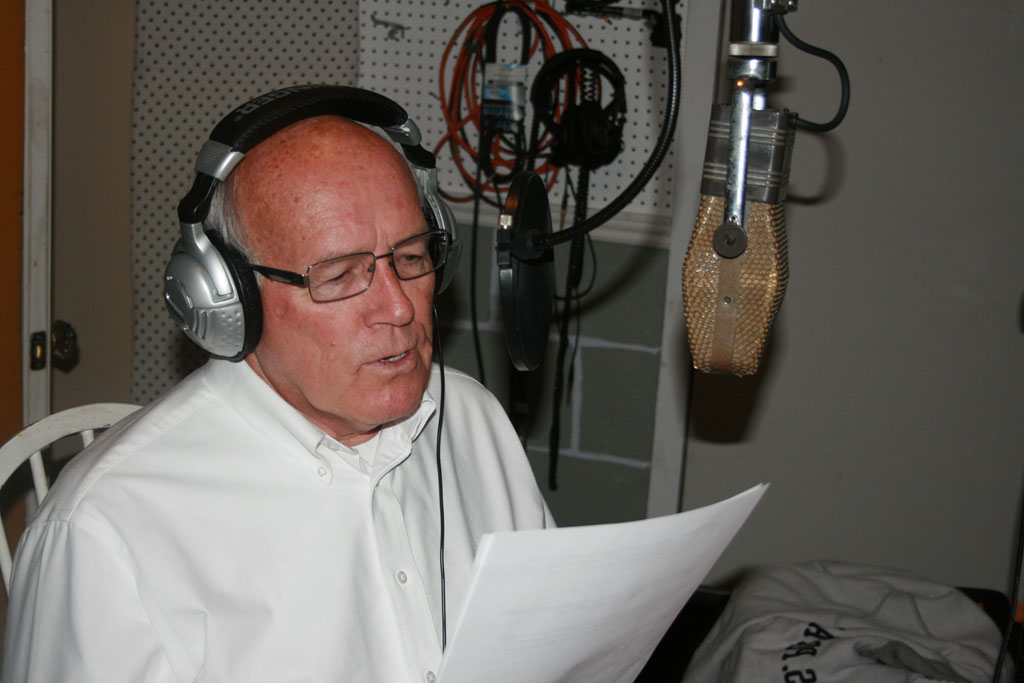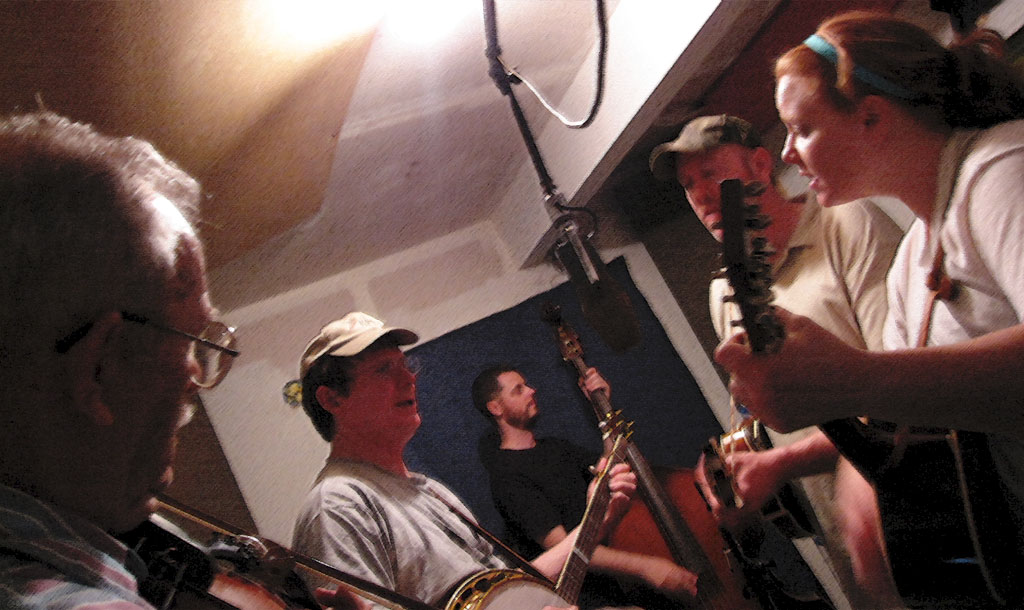We think of “It’s Opry Time” as a unique recording in that, rather than a collection of new songs (or even old songs done in a new way), it’s basically a tribute recording. To that end, we purposely did not try to “clean up” our performances. In fact, the only “perfecting” we did was trying to make the songs as perfectly close to the originals (those by Bill Monroe’s seminal band with Lester Flatt and Earl Scruggs of the late 1940’s) as was reasonable under the circumstances … even to the point of including the mistakes present on the original recordings we used as models! In a way, this recording was a lesson to us (and perhaps to some listeners) in what the first, and thus most “traditional”, bluegrass music was like.
The liner notes to the CD start to describe what was behind this recording, but here we can go into more detail than the CD cover space allowed, and we can show related pictures and even play related videos!
So here we go, track by track!
“Daring!” Someone said that what we’ve attempted with this recording is daring. After all, there has probably not been a studio release in the last four or five score that contains recordings capturing an entire five piece band playing and singing all at the same time, in the same room, into the same single microphone. Even most “live” recordings nowadays include overdubs, fixes, etc. It has come to be accepted, and even expected. Not so with this recording.
Of course, overdubbing, etc. was never done in the “olden days” of blue grass (back only 6 decades ago, when this music was originated). It wasn’t even possible. But what’s the connection?
Arising from our “Tuesday night wine party” gripe sessions about the increasing prevalence of untraditional bluegrass, we (George and Matt) inevitably decided to take it all the way and form a band that must be as traditional as possible. This of course, if taken to the extreme, must mean imitating as closely as possible Bill Monroe’s band with Lester Flatt and Earl Scruggs (as well as Chubby Wise, Howard Watts, Birch Monroe and others) of the mid-late 1940s. Well, try to imitate them we did; heck, we even tried to copy their mistakes! So, every song you hear here is one that the blue grass band performed back in the day, whether on a commercial release, alternate take, or live bootleg. Some of the latter that we found are extremely rare and the quality is barely decipherable. And some were available only at inaccurate speeds due to faulty old technology, so we had speed them up or slow them down to the tempos at which they were actually performed. But all the tunes found on this recording were done by the band during the period; that is to say Bill Monroe and His Blue Grass Boys with Lester Flatt and Earl Scruggs, between 1945-’48.
It’s been incredibly educational (not to mention really fun!) studying the original blue grass band. As it turns out, we learned an amazing amount about this music from our newfound, and sometimes relentless, dedication to the original blue grass band. It was surprisingly difficult, and refreshing, to unlearn what we thought were “traditional bluegrass” habits, and follow cultishly the lessons of the playing and singing of the band. For example: Bill didn’t chop much at all. Howard and Birch’s string bass parts walked more than they didn’t. Heck, it wasn’t even called “bluegrass music” yet! And the (surprisingly complex) trios, with their non-standard parts, were rare, although quartets (also different from current formulae) were fairly common. Nowadays it’s very unusual to have only the mandolin and fiddle trade solos, without including the banjo, or (God forbid) the guitar. But this is how the band often did it. Thanks, Bill and Boys, for these lessons. We will never forget them, and we hope everyone else never does either.
Luckily, we were able to find some nearby and willing co-conspirators. Jenny Lynn, with her authentic, and now-rare, thumbpick style, and Jim with his raw and natural “Chubby” style, were obvious choices. And although “Cousin” Mark came from a different musical world (punk, jazz and alt-country), this very background actually helped him avoid today’s oft-misguided “bluegrass” bass style.
As regards this compilation, we had near-fatal misgivings about releasing these recordings in the Compact Disc format. Of course there is the issue that nowadays most people buy (or “share”) online downloads rather than CDs. But in the case of the Pleasant Valley Boys, since we’ve tried as hard as possible to do things “the 1947 way”, we really would have preferred to put these recordings out two-at-a-time on 78 or 45 rpm records. We did, in-fact, release one such 78 rpm single previously, and seriously considered packaging a few of the new recordings up into an “album” of a dozen or so songs, just as they did back in the day. But alas, today’s reality just seems to require some type of digital release. So here ya go!
We really hope you appreciate it, with all its imperfection, as it was intended. Long live real bluegrass! Matt and George


